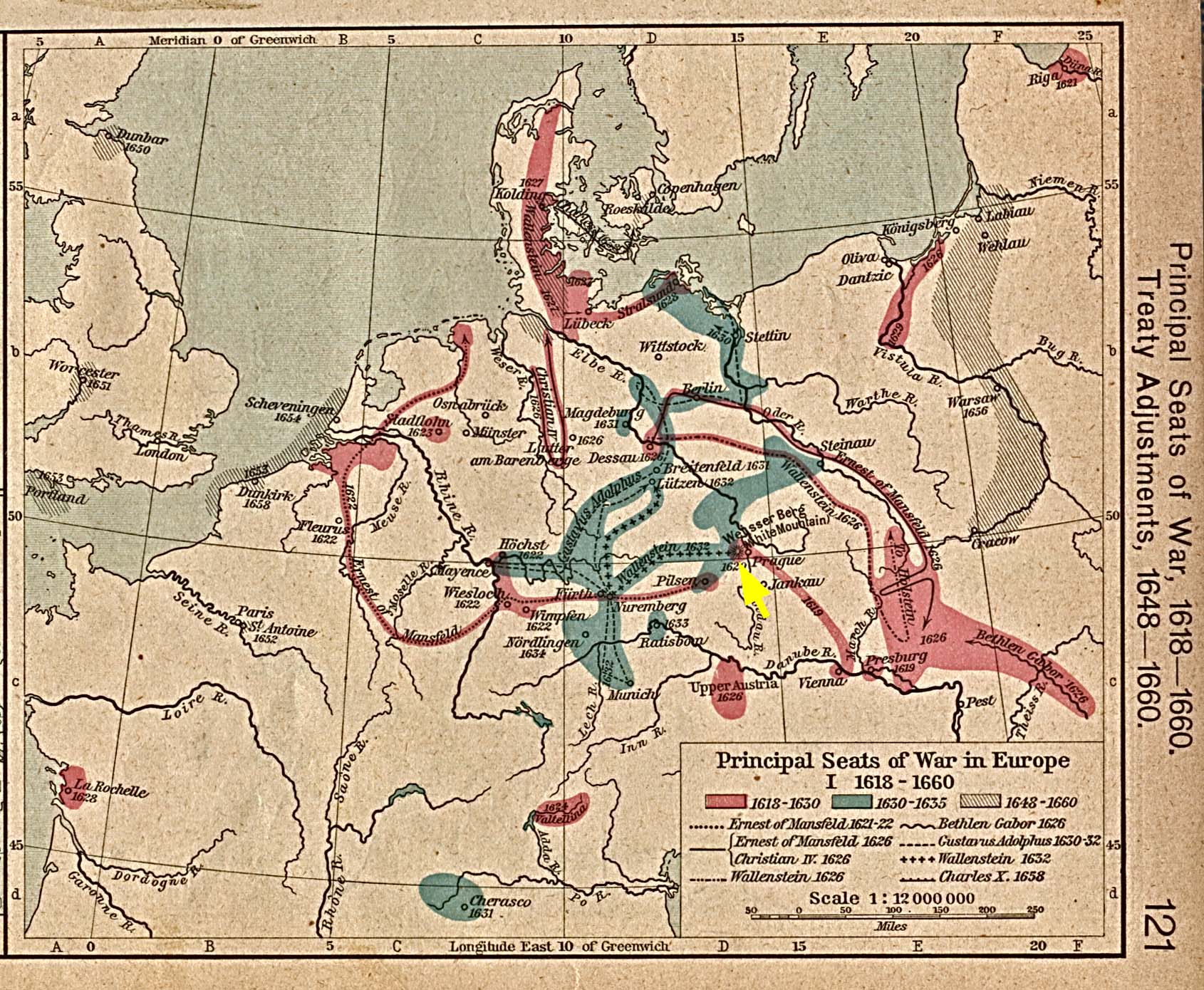 |
Map from Perry-Castaneda Library Map Collection, University of Texas Libraries, http://www.lib.utexas.edu/maps/historical/history_europe.html |
In the early 16th century, there was increasing friction between the Catholic Church and the Protestant breakaways. Kepler’s resolve to continue working with the cantankerous old Brahe was stiffened by an edict by the archduke (who declared he would rather "make a desert of the country than rule over heretics") that all Protestant citizens of Graz had to appear before an ecclesiastical commission and declare their return to the Catholic faith or be expelled (upon pain of death).
Upon Tycho’s death 18 months after his first meeting with Kepler, Kepler was named to his old post and lived on the resulting income until the coming of civil war to Prague and the death of his wife and a child in 1611 and the death of Rudolf in 1612. Kepler took a new post then as provincial mathematician in Linz, Austria and continued his work, completing his great work Harmonice Mundi in 1618. Three days later in a protest in Prague two of the royal Hapsburg ambassadors were thrown out of a castle window. If you tour Prague Castle today (highly recommended!), you will be shown the very window, and introduced to a new word, “defenestration” – from the Latin root for “window”, fenestra, with the prefix “de” to represent “out of”. “Fortunately” they escaped with minor injury because of a manure pile on the ground under the window that cushioned their landing.
The religious issues came to a head in 1619, when King Ferdinand was elected Emperor of the Holy Roman Empire. Ferdinand immediately sent troops to restore his authority but, at the same time, the Bohemians decided to depose Ferdinand. They chose the Elector Palatinate as their new King and he proceeded immediately to Bohemia to become Frederick V, which brought Protestant aid and Dutch money to Bohemia. The move had the support of the Protestant states as that would have given them a majority in the election of any new Emperor and so enable them to elect a Protestant. The Emperor, assisted by Papal money and Spanish troops, and aided by Catholic Bavaria, defeated the Bohemians at the Battle of White Mountain and forced Frederick to flee. The battle was so devastating that the Protestant forces never really recovered. As a result of the war, the Spaniards entrenched themselves in Bohemia and built up their position against the French and the Dutch. Emperor Ferdinand was restored as King of Bohemia and confiscated much of the land belonging to the Bohemian nobles, which land he endowed upon the Catholic Church. Jesuits poured into the country and began to re-Catholicize the people.
Subsequent events plunged all of northern Europe into chaotic war of unprecedented
destructiveness. Populations of entire towns were exterminated. Virtually every building
was destroyed. The series of wars was finally brought to an end in 1648 through the Peace
of Westphalia. If you visit this area (south of Prague is a good choice), you will find
virtually no traces of life before 1650 – all the towns were rebuilt from the ground
up following their destruction. Below is a map of the major campaigns in the war,
with Prague marked in yellow to show how it was near the center of the destruction.
 |
Map from Perry-Castaneda Library Map Collection, University of Texas Libraries, http://www.lib.utexas.edu/maps/historical/history_europe.html |
Kepler had to survive and carry out his science in the midst of the chaos of the
30 Years’ War. He even had to interrupt his astrology and astronomy to return to his
birthplace to defend his 70 year old mother. She was described in the family horoscope as
"small, thin, swarthy, gossiping and quarrelsome, of a bad disposition". She
collected herbs and made potions which she believed had magical powers and was raised by
an aunt who was burned at the stake as a witch. As part of the general breakdown of order,
accusations of witchcraft were shockingly frequent. For example, in Kepler's birthplace of
Weil der Stadt 38 witches were burned between 1615 and 1629, and in the nearby town where
his mother had moved, 6 were burned in 1615 alone (Koestler, Sleepwalkers). It is not
surprising that she was similarly accused. Kepler had to hire several lawyers to defend
her along with another woman born in the same town and accused of complicity with her.